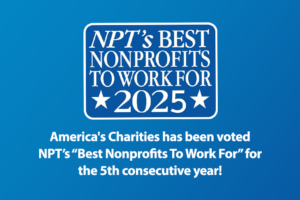Sarah Ford | February 18, 2014
Rhode Island Lawmakers Urged to Ban Abusive Elephant Training Devices
Source: The Humane Society of the United States
 Rhode Island legislators are seeking to prohibit the inhumane treatment of elephants used in circuses and traveling shows—specifically the use of bullhooks and other cruel devices.
Rhode Island legislators are seeking to prohibit the inhumane treatment of elephants used in circuses and traveling shows—specifically the use of bullhooks and other cruel devices.
The Humane Society of the United States applauds Reps. Raymond Gallison, D- 69, and Patricia Serpa, D- 27, and Sens. Archambault and Ruggerio for introducing HB 7192/S 2189 to protect animal welfare and public safety.
The bullhook is the device most commonly used by circuses to train, punish and control elephants. Resembling a fireplace poker, a bullhook has a sharp metal hook and spiked tip, and the handle is typically plastic or wood. It is used to poke, prod, strike and hit elephants on their sensitive skin in order to “train” them and often causes bloody puncture wounds and lacerations.
Nicole Paquette, vice president of wildlife protection for The HSUS, said: “Devices that cause pain and suffering have no place in the handling of captive elephants. We commend Representatives Gallison and Serpa for taking steps to protect these highly intelligent and social animals from inhumane and outdated training methods.”
Rep. Gallison said: “This legislation affords Rhode Island the opportunity to protect elephants from this barbaric and outdated training device, the bullhook, from being used upon these majestic animals, and helps to insure their safety and welfare. Rhode Island will be joining other cities that have prohibited this practice. This legislation affirms our state’s commitment to protecting animals, who cannot speak for themselves.”
HB 7192/S 2189 also prohibits the constant chaining of elephants. Elephants in circuses are typically chained overnight by two legs, permitting only enough space to move three feet forward or backward. Chaining severely limits movement and the ability to lie down, prevents these highly social animals from interacting normally with one another, and causes deadly foot disorders and arthritis.
Facts:
- The use of bullhooks results in trauma, suffering and physical injury, often including lacerations, puncture wounds and abscesses to an elephant’s sensitive skin, which is rich in nerve endings and susceptible to abrasions.
- Elephant sanctuaries and most accredited zoos that house elephants no longer use these barbaric devices and instead rely exclusively on positive reinforcement, such as treats and praise.
- At least 40 US municipalities have passed full or partial restrictions on the use of wild animals in public displays and/or the use of bullhooks and more than 30 countries have passed national restrictions.
- Since 1990, at least 16 human deaths and 135 injuries in the U.S. have been attributed to elephants, mainly involving circuses.
Media Contact: Naseem Amini, 301-548-7793, namini@humanesociety.org
Get Resources and Insights Straight To Your Inbox
Explore More Articles
For Fifth Consecutive Year America’s Charities Named ‘Best Nonprofit To Work For’
Washington, D.C. – April 1, 2025 – America’s Charities, the nonprofit that mobilizes the power of giving as a leading provider of volunteering, workplace giving,…
Read ArticleWorkplace Fundraising + Volunteering Summit (April 2nd and 3rd, 2025)
Join us in attending this virtual summit! The America’s Charities team is joining up with other leading voices in the workplace giving space for a…
Read ArticleThe Time to Act is Now
The results of the 2024 National Assessment of Educational Progress (NAEP) are in, and the findings are, in a word, heartbreaking. This assessment serves as…
Read ArticleGet Resources and Insights Straight To Your Inbox
Receive our monthly/bi-monthly newsletter filled with information about causes, nonprofit impact, and topics important for corporate social responsibility and employee engagement professionals, including disaster response, workplace giving, matching gifts, employee assistance funds, volunteering, scholarship award program management, grantmaking, and other philanthropic initiatives.




